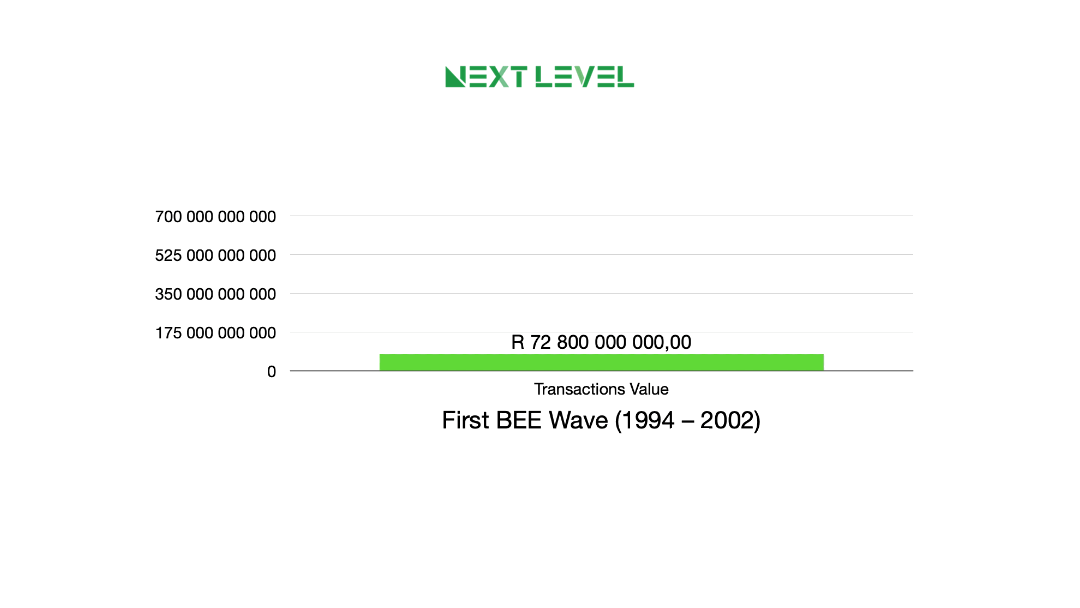Support for super BEE fund gains momentum: But can it survive public skepticism
Caption:
The proposed R100bn Transformation Fund is intended to
finance black-owned businesses over a five year
period.
📷 NL-GRAPHICS DEPT
Entrepreneur and industrialist Patuxolo Nodada is upbeat about the proposed R100bn Transformation Fund, which he believes is a perfect vehicle for unlocking the third wave of black economic empowerment (BEE).
The push for the fund’s establishment follows the perceived failure of private sector-backed Enterprise & Supplier Development (ESD) and Equity Equivalent (EE) programmes to develop sustainable black-owned and managed businesses that are integrated into the supply chains of key industries of the South African economy.
However, the fund -- championed by Trade, Industry, and Competition Minister Parks Tau -- is facing intense public criticism and skepticism. The pro-white business lobby group Sakeliga says it will legally oppose the fund because it is a “direct attack” on white businesses while the country’s second largest political party, Democratic Alliance (DA), says it rejects the fund because it “exclusively assist black businesses”.
Nodada, who is the executive director of private investment group Siga Capital, disagrees with the fund’s critics. Instead he has urged Tau to stand up to corporates that are failing to meet BEE targets, particularly targets related to ESD and equity equivalents.
“I support the creation of the Transformation Fund, but Minister Tau must have courage to tell corporates that they are failing to effectively manage their ESD programmes. The absence of performance monitoring of ESD funds and prevalence of fake BEE scorecards are holding back BEE policy implementation. BEE funding is at the mercy of corporates which mislead us completely about their funds’ lending practices,” said Nodada.
He also accused companies managing ESD funds on behalf of corporates of under-spending the funds, starving black-owned businesses of investment capital.
“These ESD fund managers have collected billions of rand from various corporate entities, but there is no investment impact on BEE. Some ESD fund managers behave like banks and are destroying and liquidating black businesses instead of supporting them,”said Nodada.
Nodada’s criticism of ESD programmes is not without credence. Research by the BEE Commission found that R26bn was spent on ESD in 2021, but this expenditure was equivalent to 46.46% of allocated budget.
“Not all ESD funds are invested optimally and effectively, so the idea of the Transformation Fund is to aggregate the monies set aside for ESD and invest them where they are most needed and can be more impactful,” said Tshediso Matona, Commissioner of the BEE Commission.
Details are still unclear about the fund’s investment strategy, except that it will be managed by state-owned lender National Empowerment Fund (NEF). Tau has proposed that the fund be primarily capitalised with financial contributions from the private sector, which is required to contribute to financing of ESD and EE programmes as part of BEE policy compliance.
Under the BEE legislation, corporates are required to spend 3% of post-tax profits on ESD while multinationals that are prohibited by their global policies from selling equity stakes to locals in host countries are required to make financial contributions in lieu of direct sale of equity. These contributions are referred to as equity equivalents (EEs) and are equivalent to 25% of the value of a multinational’s South African operations or 4% of annual total revenue from its local operations.
Once established, the fund could receive up to R20bn in annual contributions over a five-year period, with proceeds used to extend funding to black-owned SMMEs in the form of loans, equity, and grants.
Toby Chance, DA’s spokesperson on Trade, Industry & Competition, said in a statement in late January that DA, a key member of the current ruling coalition government, will not support the creation of the fund. “The government cannot create such a fund without first obtaining the explicit approval of Cabinet, especially when it effectively introduces a new tax on the private sector,” Chance said.
Tshepo Phetla, Telkom’s head of business development, has also warned that the fund’s establishment must not result in the confiscation of corporate-backed ESD funds as this could take away the autonomy of corporates from forming strategic alliances with SMMEs.
“The fund will be a great addition to the ecosystem if it supplements instead of replacing existing ESD efforts. Furthermore, this is a welcomed intervention if it targets foreign direct investment (FDI) funds and does not result in additional tax burden on corporates,” Phetla said.
Phetla, who is responsible for Telkom’s Futuremakers ESD programme, also believes that governance and guardrails will have to be tightened around the fund to eliminate any possibility of maleficence.
Despite strong skepticism and criticism of the fund, its supporters see it as a crucial intervention that will complement the Public Procurement Act (PPA) -- another key policy intervention that is expected to unlock the third wave of BEE.
The previous BEE waves had a limited success because they were largely about the sale of equity stakes by white-owned companies to black investors. This type of BEE is associated with benefiting a small politically-connected elite that earns dividends from its equity holdings while little BEE-related wealth has trickled down to the majority of black South Africans.
The third wave promises to change this. Going forward, the emphasis will be on developing black-owned companies that operate and generated new wealth in key economic sectors ranging from manufacturing, agriculture, retail, real estate, mining to financial services, tourism, telecoms, IT, and healthcare.
While the Transformation Fund will provide funding, the PPA will create a market for black-owned companies wishing to do business with the state, giving them exposure to R800bn annual procurement spending. The PPA will replace the Preferential Procurement Policy Framework Act (PPPFA) and will regulate spending on goods and services by government.
The first wave of BEE took place between 1994 and 2002 while the second wave has been running from 2003 to this day. The first wave delivered 359 deals valued at R72.8 billion while the second wave delivered 686 transactions valued at R595,2bn. In total, 1 045 transactions valued at R658 billion have been concluded since the end of apartheid in 1994.

📷 NL-GRAPHICS DEPT
The establishment of Transformation Fund has been long time coming. Prominent businesswoman Polo Leteka, founder and chairperson of IDF Capital, has been proposing the creation of a super BEE fund to finance the third wave of BEE while Kganki Matabane, CEO of Black Business Council, has been lobbying for the promulgation of PPA to complement BEE funding initiatives.
But Sakeliga has vowed to fight off any threats posed by the third wave of BEE to white businesses. Last week, the lobby group issued a statement saying it will oppose the growing threat of a third wave of BEE and accused government regulators of withholding licenses in some sectors to “extort” white-owned businesses.
“The good news is that we are successfully resisting and rolling back these BEE attacks on private businesses. We have filed two strong BEE cases in the aviation and real estate sectors. We also continue to confront the Competition Commission, both in relation to their race-based interference in billions of rands' merger and acquisition deals and their BEE plans for fresh produce markets,” said Robbie Spooner, spokesperson for Sakeliga.


